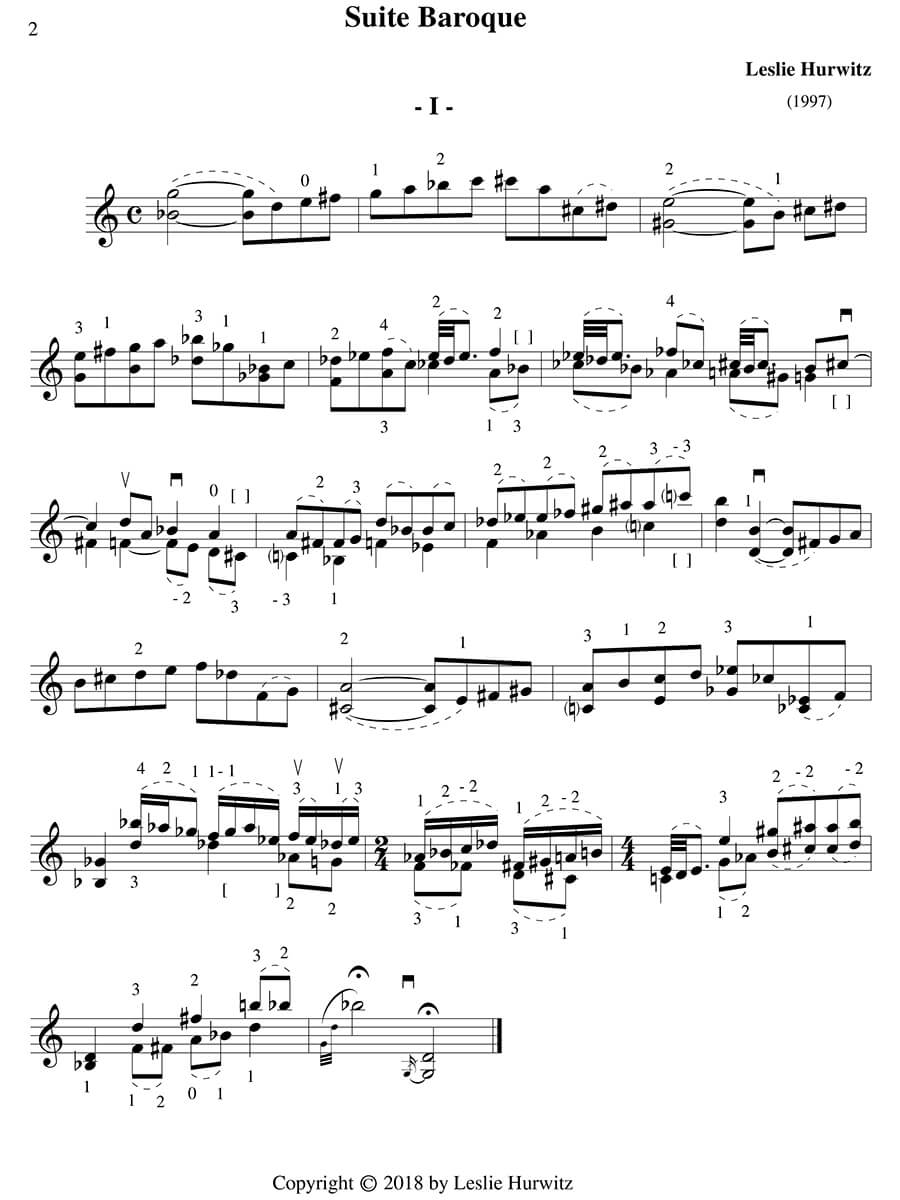Works for Solo Violin, including Suite for two unaccompanied violins (first print)
Hurwitz, Leslie
34,00 €
Preface
Hurwitz, Leslie
Works for Solo Violin, including Suite fpr two unaccompanied violins (first print)
Introduction by Ricardo Odriozola
One of the first things I always do when I open a published score of violin music that has been edited, fingered and bowed by someone, is to ignore all of the bowings and fingerings and develop my own, in accordance to my conception of the piece at hand.
It thus may seem a bit of a paradox that I now present an edition of virtually unknown violin works teeming with fingerings and bowings of my own.
All of the works in this collection have been written for me over a period of twenty one years by one single composer: Leslie Hurwitz.
I first met Leslie Hurwitz in August 1982. I was an exchange student from Spain in the academic year ‘82-’83, when I completed my final year of high school in Arlington (Massachusetts). Hurwitz taught a theory course at college level there, and I was one of his students. That year he wrote the fist of many pieces he has produced for me over the years, Sonatine Prudent, Pratique for violin and piano, which I performed twice with him in 1983. That piece, along with two others with piano, appears in a companion edition to this one. The present one is devoted to music for unaccompanied violin.
I remain the only violinist to have performed these works so far (the Sonatine was performed once in 1984 by Dr. Paul Roby, of the Longy School of Music, but I believe that was an isolated event).
Hurwitz has always given me free rein to do as I please with the musical texts he has provided. He generally gives very little information where it concerns dynamics, articulation or even character or tempo. The few suggestions he does offer in his scores are usually accompanied by a question mark. The visual austerity of these scores may remind us of J.S. Bach, who managed very well indeed with the mere use of slurs, f and p, and the occasional pianissimo, (written in full). Bach had a circle of musicians around him who understood his intentions, and thus he did not need to write more information into his scores. In the case of my long friendship and musical partnership with Hurwitz, I have been fortunate to be granted his explicit trust in my musical decisions, to the extent that he sees the works he has written for me as both his and mine. I would personally dispute that point of view, but am happy to be trusted in choosing whichever prism I may see fit to use in order to interpret his musical vision. …
Read full text > HERE
Score Data
| Edition | Repertoire Explorer |
|---|---|
| Genre | Solo Instrument |
| Format | 225 x 320 mm |
| Druck | Erstdruck |
| Seiten | 114 |
